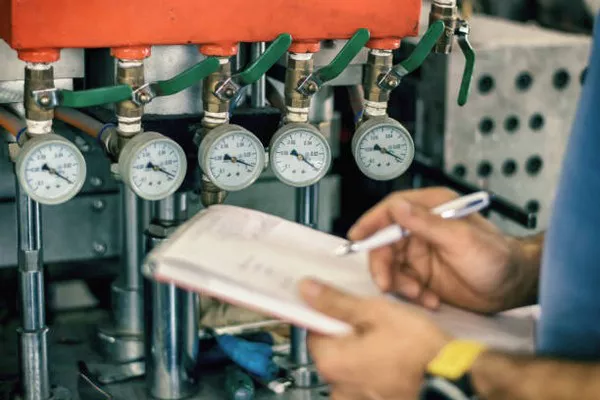Electrical equipment is an integral part of our daily lives, powering everything from our homes to industries. While these devices are essential, they also pose a fire hazard due to the presence of electricity. When a fire involving electrical equipment breaks out, it’s crucial to have the right fire extinguisher on hand to mitigate the risk. In this comprehensive guide, we will explore the various types of fire extinguishers and help you understand which one is best suited for electrical equipment fires.
Understanding Fire Classes
Fire extinguishers are categorized into different classes, each designed to tackle specific types of fires. These classes are denoted by letters, and understanding them is essential in choosing the right extinguisher for a particular type of fire. Electrical fires fall under Class C. To better understand which fire extinguisher is suitable for electrical equipment, let’s briefly review the different fire classes:
Class A: These fires involve ordinary combustible materials like wood, paper, cloth, and plastics.
Class B: These fires are fueled by flammable liquids, such as gasoline, oil, or grease.
Class C: Electrical fires are the focus of this class, where the fuel source is energized electrical equipment.
Class D: These fires involve combustible metals, like magnesium or sodium, which are typically found in industrial settings.
Class K: This class is specifically designed for fires that occur in commercial kitchens, often fueled by cooking oils and fats.
For electrical equipment fires, it is essential to choose a fire extinguisher that is specifically rated for Class C fires.
Types of Fire Extinguishers
Now that we have a basic understanding of the fire classes let’s delve into the types of fire extinguishers and their suitability for electrical equipment fires:
Carbon Dioxide (CO2) Extinguishers (Class B & C):
CO2 extinguishers are highly effective for electrical fires because they do not leave residue that could damage sensitive equipment.
The CO2 displaces oxygen, effectively suffocating the fire.
These extinguishers are suitable for small to medium-sized electrical equipment fires.
Dry Chemical Extinguishers (Class A, B, & C):
ABC dry chemical extinguishers are versatile and can be used on multiple fire classes, including Class C fires.
They contain a fine powder that interrupts the combustion process.
While effective, the residue can be corrosive to sensitive electrical components, and cleanup is required after use.
Halon Extinguishers (Class B & C):
Halon extinguishers were once widely used for electrical fires because they left no residue and were non-conductive.
However, due to environmental concerns, they have been largely phased out and replaced with alternatives like Halotron or FM-200.
Clean Agent Extinguishers (Class B & C):
Clean agents, such as Halotron or FM-200, are non-conductive and leave no residue, making them safe for use on electrical fires.
They are considered an environmentally friendly alternative to Halon extinguishers.
Selecting the Right Fire Extinguisher
Choosing the right fire extinguisher for electrical equipment depends on several factors:
Size of the Fire: The size and intensity of the fire will determine the type and size of extinguisher needed. For smaller fires, a handheld extinguisher may suffice, while larger fires may require a fixed system or the assistance of professionals.
Location: Consider the location of the electrical equipment. In confined spaces or areas with limited ventilation, a clean agent extinguisher may be preferred to minimize damage and ensure safety.
Environmental Impact: While Halon extinguishers are effective, their production and use contribute to ozone layer depletion. Opting for environmentally friendly alternatives like Halotron or FM-200 is a responsible choice.
Accessibility: Ensure that the chosen fire extinguisher is easily accessible in case of an emergency. Properly maintained and inspected extinguishers are essential.
Training: It is vital to provide training to individuals who may need to use the fire extinguisher. Knowledge of how to operate it safely and effectively is key to minimizing damage and ensuring safety.
Maintenance and Inspection
Once you’ve selected the appropriate fire extinguisher for electrical equipment, it’s essential to keep it in optimal working condition. Regular maintenance and inspection are crucial:
Inspections: Conduct monthly visual inspections to ensure that the extinguisher is in its designated location, has not been tampered with, and is in good condition.
Annual Maintenance: Have a certified technician perform an annual maintenance check, which may include refilling, pressure testing, and verifying that all components are in working order.
Training: Ensure that your staff is trained on the proper use of fire extinguishers. Regular fire drills and training sessions can help build confidence and ensure quick and effective responses during emergencies.
Conclusion
Protecting electrical equipment from fire hazards is of utmost importance. By selecting the right fire extinguisher and following proper maintenance and inspection procedures, you can mitigate the risk associated with electrical fires. Remember that safety should always be the top priority, and being prepared for emergencies is a responsible and essential aspect of any organization or household.

